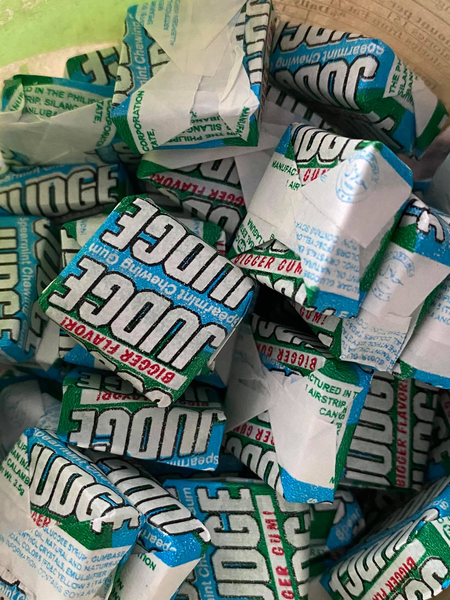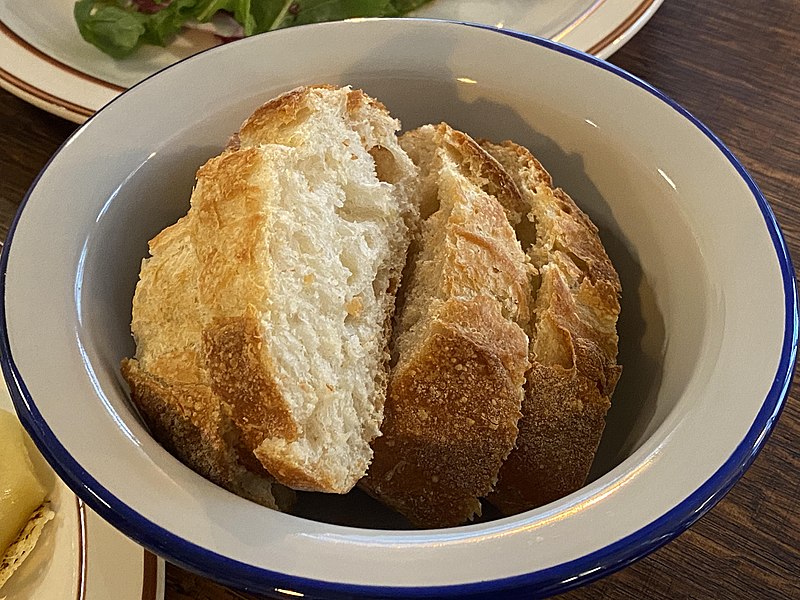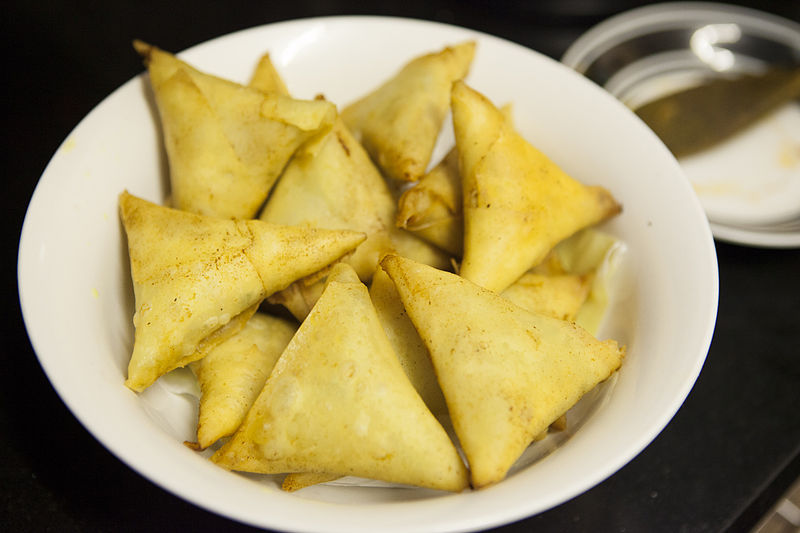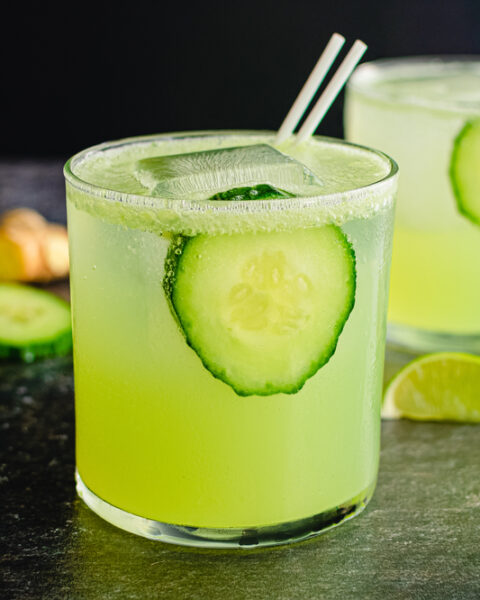You won’t believe some of the food laws out there! Around the world, different countries have implemented unique and sometimes surprising regulations regarding what you can and can’t eat, how food should be prepared, and even where you can enjoy certain meals. These laws often reflect the cultural values, historical contexts, and public health priorities of each nation. Exploring these intriguing food laws from around the globe gives us a glimpse into how different societies prioritize and manage their culinary landscapes.
Contents
- 1 France Banned Ketchup In School Cafeterias
- 2 Hungry People Can Legally Steal Food In Italy
- 3 Singapore Banned Chewing Gum For More Than A Decade
- 4 Little Debbie Swiss Rolls Are Banned In Norway And Austria
- 5 Chile And Mexico Banned Cartoon Cereal Mascots
- 6 Mexico Puts Warning Labels On Nestlé Products Due To High Levels Of Sugar And Fat
- 7 French Bakers Must Abide By Stringent Rules When Making Baguettes
- 8 It’s Against The Law To Feed Pigeons In Venice
- 9 In Japan, It’s Illegal to Eat Certain Types of Fish
- 10 It’s Illegal to Sell Samosas in Somalia
- 11 More From RetailShout
- 12 14 Ultimate Food Cities in the United States
- 13 16 Everyday Things Becoming Unaffordable for the Middle Class
France Banned Ketchup In School Cafeterias

In 2011, France took a bold step by banning ketchup in school cafeterias. This law was implemented to preserve traditional French cuisine and ensure children are familiar with local foods. The only exception to this rule is when ketchup is served with French fries, but even then, it is closely monitored. The government believed that unrestricted access to ketchup could lead to the erosion of French culinary traditions among young students. This move emphasizes the importance France places on its cultural heritage through food.
Hungry People Can Legally Steal Food In Italy

Italy’s highest court ruled in 2016 that stealing small amounts of food to stave off hunger is not a crime. This decision was based on the principle that the right to survival prevails over property rights. The ruling was sparked by the case of a homeless man who took food from a supermarket because he was starving. This compassionate law aims to address the basic needs of the most vulnerable members of society. By prioritizing human dignity over strict legalism, Italy has set a precedent for humane justice.
Singapore Banned Chewing Gum For More Than A Decade

Singapore’s chewing gum ban, introduced in 1992, is one of its most well-known laws. This regulation was primarily aimed at maintaining the cleanliness of public spaces and ensuring the smooth operation of the Mass Rapid Transit (MRT) system. Chewing gum litter was causing significant issues, including the disruption of train services. While the sale of chewing gum is restricted, it can be legally consumed, provided it is prescribed for therapeutic purposes. This strict measure highlights Singapore’s commitment to public order and cleanliness.
Little Debbie Swiss Rolls Are Banned In Norway And Austria

Norway and Austria have banned Little Debbie Swiss Rolls due to health concerns. These popular American snack cakes contain additives such as Yellow 5 and Red 40, which are prohibited in many European countries. The ban reflects stricter European standards on food additives and preservatives aimed at protecting consumer health. These countries prioritize the consumption of natural and minimally processed foods, aligning with their stringent food safety regulations. This law serves as a reminder of the varying global standards in food safety.
Chile And Mexico Banned Cartoon Cereal Mascots

Both Chile and Mexico have implemented bans on cartoon mascots on cereal boxes as part of their fight against childhood obesity. These mascots are seen as marketing tools that attract children to unhealthy, sugary foods. By removing these appealing characters, the governments aim to reduce the consumption of junk food among children. This legislation is part of broader public health initiatives to promote healthier eating habits from a young age. It underscores the role of marketing in influencing dietary choices and the need for regulatory measures.
Mexico Puts Warning Labels On Nestlé Products Due To High Levels Of Sugar And Fat

Mexico has introduced strict regulations requiring warning labels on products with high levels of sugar, fat, and calories. Nestlé products, among others, are affected by this law, which aims to combat the rising rates of obesity and diabetes. These black octagonal warning labels inform consumers about the health risks associated with excessive consumption of certain products. This proactive approach reflects Mexico’s efforts to enhance public health awareness and encourage healthier dietary choices. The law has received international attention as a model for food labeling.
French Bakers Must Abide By Stringent Rules When Making Baguettes

In France, the making of traditional baguettes is governed by a law passed in 1993. This regulation mandates that baguettes must be made on the premises where they are sold and only with four ingredients: wheat flour, water, yeast, and salt. No additives or preservatives are allowed, ensuring the authenticity and quality of the iconic French bread. This law is part of France’s broader efforts to preserve its culinary traditions. By maintaining strict standards, France protects its gastronomic heritage and ensures high-quality products for consumers.
It’s Against The Law To Feed Pigeons In Venice

Venice has enacted a law prohibiting the feeding of pigeons, particularly in St. Mark’s Square, to protect its architectural heritage. Pigeon droppings were causing significant damage to the city’s historic buildings and monuments. The ban, which includes fines for those who violate it, aims to reduce the pigeon population and mitigate the associated cleaning and repair costs. This measure highlights the city’s efforts to preserve its cultural and historical sites. By regulating public behavior, Venice seeks to maintain its beauty and integrity for future generations.
In Japan, It’s Illegal to Eat Certain Types of Fish

Japan has laws prohibiting the consumption of specific fish species, such as fugu (pufferfish), unless prepared by licensed chefs. Fugu contains a lethal toxin, and improper preparation can lead to fatal poisoning. To protect consumers, the government requires chefs to undergo rigorous training and certification before they are allowed to serve this delicacy. This law aims to prevent accidental poisoning while preserving a significant aspect of Japanese culinary tradition. The stringent regulations ensure that the high-risk dish is prepared safely, highlighting Japan’s approach to food safety and cultural preservation.
It’s Illegal to Sell Samosas in Somalia

In Somalia, selling samosas is banned due to their perceived association with colonial rule. The triangular shape of samosas is said to resemble the symbol used by colonial powers, and this association has led to their prohibition. This unusual ban highlights the complex ways in which historical and cultural contexts can influence food laws. By forbidding the sale of samosas, Somalia aims to distance itself from remnants of its colonial past. This law reflects the deep-seated impacts of colonial history on contemporary practices.
This article originally appeared on RetailShout
More From RetailShout
22 Genius Tips for an Organized Pantry

Keeping your pantry organized can feel like a never-ending battle, but with a few creative strategies, it can be a breeze. Imagine opening your pantry door to find everything neatly in place, with a spot for every item and no more frustrating searches for that elusive jar of spices. Read More.
14 Ultimate Food Cities in the United States

When it comes to food, America has some of the most exciting cities that are perfect for any foodie. These cities are not just about delicious dishes but also about unique culinary experiences that you won’t find anywhere else. Read More.
16 Everyday Things Becoming Unaffordable for the Middle Class

Lately, it feels like more and more things are slipping out of reach for the middle class. It’s not just about cutting back on a few luxuries; it’s about major parts of life that used to be manageable. Read More.






